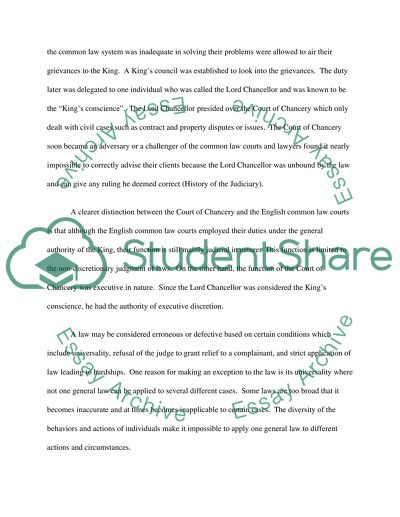Cite this document
(The Creation of Equity and Its Difference From Common Law Essay Example | Topics and Well Written Essays - 1500 words, n.d.)
The Creation of Equity and Its Difference From Common Law Essay Example | Topics and Well Written Essays - 1500 words. https://studentshare.org/law/1542613-explain-the-reasons-behind-the-creation-of-equity-what-is-it-and-how-is-it-different-from-common-law-what-is-the-present-relationship-between-common-law-and-e
The Creation of Equity and Its Difference From Common Law Essay Example | Topics and Well Written Essays - 1500 words. https://studentshare.org/law/1542613-explain-the-reasons-behind-the-creation-of-equity-what-is-it-and-how-is-it-different-from-common-law-what-is-the-present-relationship-between-common-law-and-e
(The Creation of Equity and Its Difference From Common Law Essay Example | Topics and Well Written Essays - 1500 Words)
The Creation of Equity and Its Difference From Common Law Essay Example | Topics and Well Written Essays - 1500 Words. https://studentshare.org/law/1542613-explain-the-reasons-behind-the-creation-of-equity-what-is-it-and-how-is-it-different-from-common-law-what-is-the-present-relationship-between-common-law-and-e.
The Creation of Equity and Its Difference From Common Law Essay Example | Topics and Well Written Essays - 1500 Words. https://studentshare.org/law/1542613-explain-the-reasons-behind-the-creation-of-equity-what-is-it-and-how-is-it-different-from-common-law-what-is-the-present-relationship-between-common-law-and-e.
“The Creation of Equity and Its Difference From Common Law Essay Example | Topics and Well Written Essays - 1500 Words”. https://studentshare.org/law/1542613-explain-the-reasons-behind-the-creation-of-equity-what-is-it-and-how-is-it-different-from-common-law-what-is-the-present-relationship-between-common-law-and-e.


